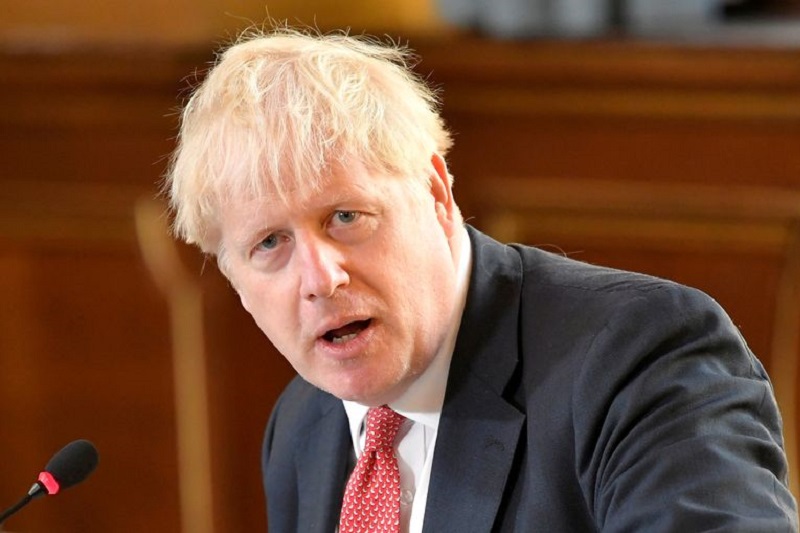By Geoffrey Smith
Investing.com -- Boris Johnson is to resign as Conservative Party leader on Thursday but intends to stay on as Prime Minister until the autumn, the BBC reported on Thursday, citing people familiar with his thinking.
The BBC said Johnson will make a statement "within hours."
"A Conservative leadership race will take place this summer and a new Prime Minister will be in place in time for the Tory party conference in October," the BBC's political editor Chris Mason said.
Johnson's position as Prime Minister has become increasingly hopeless as dozens of government ministers, including Treasury chief Rishi Sunak and Health Minister Sajid Javid, have resigned in protest at Johnson's perceived lack of integrity and a confused policy course. The final straw appears to have come when Nadhim Zahawi, the man whom Johnson had chosen to replace Sunak as Chancellor of the Exchequer only 24 hours earlier, called on him to resign on Thursday morning.
U.K. bookmakers quickly installed Sunak as favorite to take over from Johnson as soon as the leadership election can be held.
The pound ticked up on the news to trade at $1.1935, up 0.3% on the day, by 4:20 AM ET (0820 GMT). It was also 0.3% higher against the GBP/EUR, at 1.1740.
Benchmark U.K. government bond yields also rose, amid speculation that whoever replaces Johnson as Prime Minister will seek to cut taxes in an effort to shore up the party's popularity ratings. These have plummeted as Johnson has stumbled from one scandal to another in recent months, culminating in the biggest ever loss by an incumbent party at a mid-term by-election last month. U.K. benchmark stock indices rose but underperformed larger gains in continental Europe.
Tax cuts, however, may be hard to deliver. The Office for Budget Responsibility warned in a regular update on fiscal risks on Thursday that either spending cuts or tax increases will be necessary later this year to put public debt back on a sustainable path.
"Discretionary fiscal support for households, firms, and public services during the pandemic was unprecedented in scale, reaching 10.4% of GDP at its peak in the U.K., and may have raised expectations regarding the role of government in future crises," the OBR warned.
In order to bring public debt back to where it was before the pandemic, at 75% of GDP, future governments will need to tighten fiscal policy by around 1.5% of GDP at the start of every decade over the next 50 years, it said, pointing to the country's ageing population, rising defense spending needs due to the geopolitical environment, and the loss of fuel taxes as electric mobility becomes the norm.
The need for more fiscal discipline had been hinted at by Sunak in his resignation letter earlier this week, saying that the government needed to "make sacrifices and take difficult decisions."
"I firmly believe that the public are ready to hear that truth," Sunak said.
